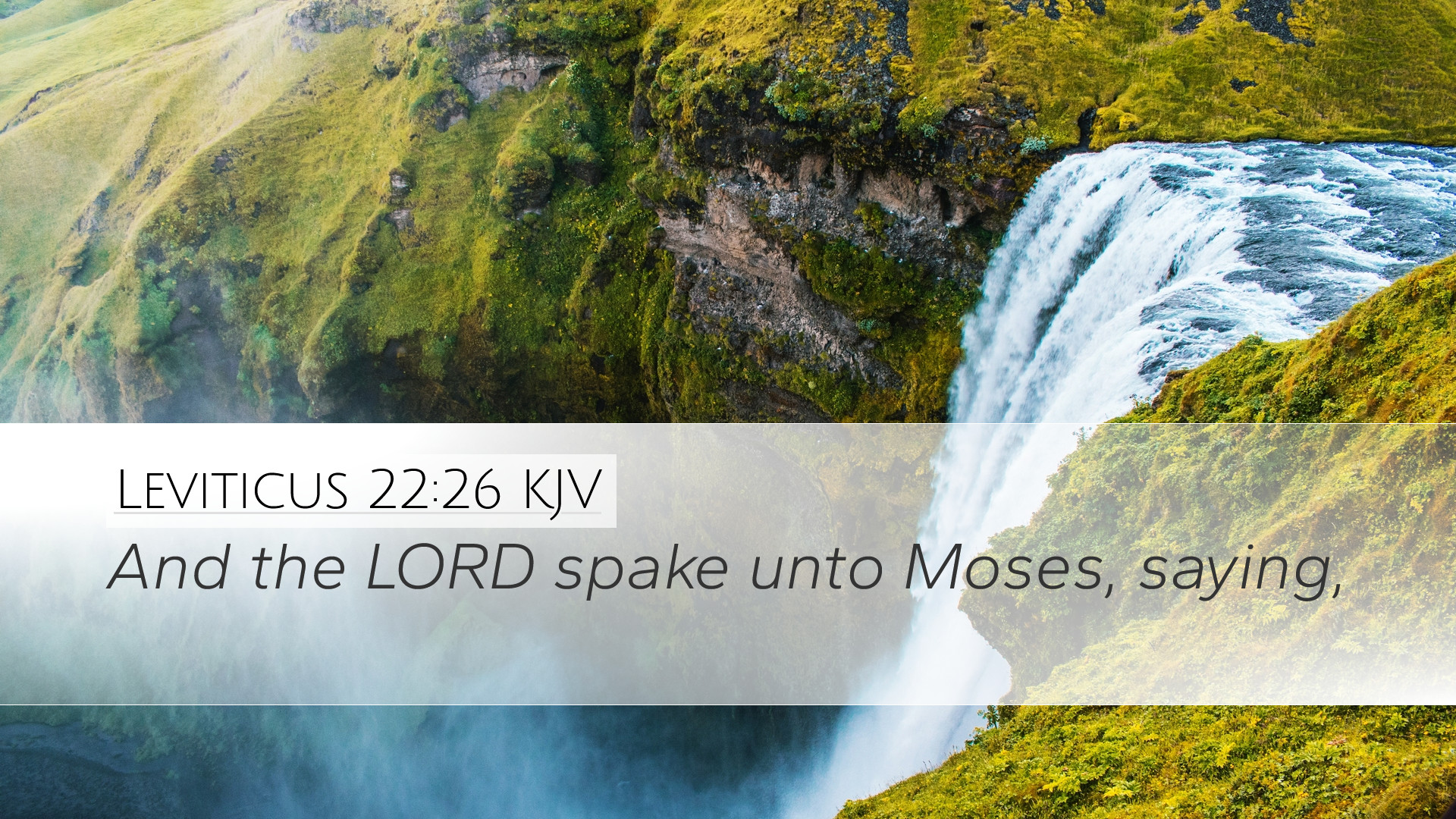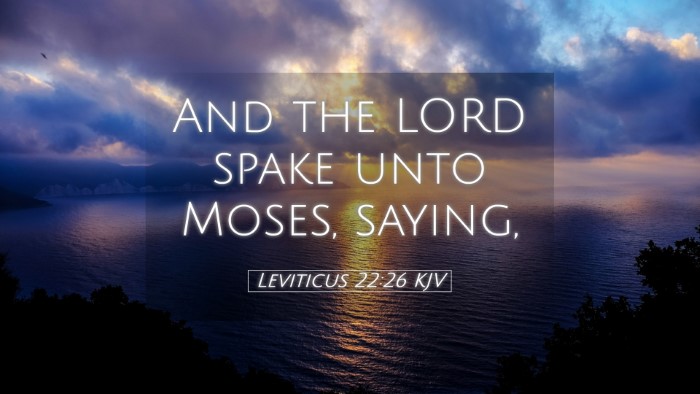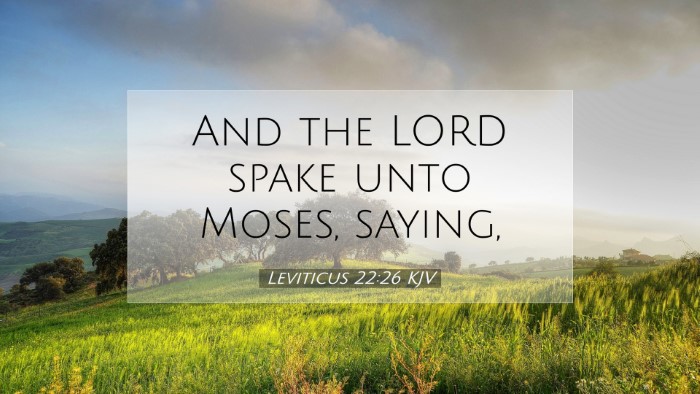Commentary on Leviticus 22:26
Verse: Leviticus 22:26 - "And the LORD spake unto Moses, saying,"
Introduction
This passage from Leviticus introduces commandments pertaining to the offerings and the sanctity surrounding them. The guidelines provided here emphasize not only the purity of the sacrifice but also the importance of adhering to God's directives with respect to sacrificial practices.
Contextual Analysis
Authoritative Instruction: The phrase "And the LORD spake unto Moses" signifies the divine origin of the laws that follow. This emphasizes the covenant relationship between God and Israel, where Moses acts as the mediator of God's instructions.
Cultural and Historical Significance: In the context of ancient Israelite society, offerings held significant religious and communal importance. They were central to worship and facilitated communion with God, thus requiring strict adherence to divine regulations.
Exegesis of Leviticus 22:26
This verse serves as an introduction to subsequent guidelines that God delineates concerning the qualifications and stipulations for offerings. Here, God is preparing Moses, who represents the people, to relay essential information regarding acceptable sacrifices.
Implications of Divine Authority
Matthew Henry notes that the juxtaposition of divine instruction with human action suggests the seriousness with which God's requirements should be regarded. The offerings are not merely cultural acts, but sacred obligations derived directly from God’s command.
Significance of the Offerings
According to Albert Barnes, the rules surrounding the offerings indicate the essential nature of purity and righteousness expected from those who approach God. The imperfections in offerings could symbolize a lack of reverence and dishonor towards God.
The Nature of God's Communication
Adam Clarke interprets God's communication as a demonstration of His desire for a covenant relationship with His people, providing explicit guidance to maintain holiness amidst their practices. This communication does not only serve as rules but also as an invitation for a deeper relationship with the divine.
Theological Implications
The theological implications of this verse are profound as they establish principles that transcend the Old Covenant and resonate throughout biblical history. They reveal God's character as holy, just, and desiring purity within His people.
- God's Holiness: The necessity of purity in offerings reflects God's inherent holiness, demanding a befitting response from His people.
- Approach to Worship: The passage underscores the seriousness of how believers approach God in worship, emphasizing intentionality and reverence.
- The Role of Mediators: Moses serves as a reminder of the necessary role mediators play in connecting humanity with the divine, foreshadowing the ultimate mediation of Christ.
Practical Applications
For contemporary believers—pastors, students, and theologians—this passage calls for reflection on how worship and offerings are approached today. The call for purity should resonate in modern-day worship practices.
- Commitment to Righteousness: Believers are encouraged to reflect on the integrity of their offerings—be they physical, spiritual, or relational.
- Understanding of Divine Standards: The standards and expectations that God places upon worshippers today still parallel those communicated in Leviticus, demanding authenticity in heart and act.
- Cultivating a Holy Lifestyle: The lifestyle of holiness spoken of in Leviticus invites believers into a deeper sanctification, allowing God's transformative power to shine in a world that often overlooks divine standards.
Conclusion
Leviticus 22:26 serves not only as a historical command but as a living word that speaks to the core of worship and relationship with the Almighty. The instructions given remind believers of the seriousness of their commitments to holiness, guiding them towards a fuller understanding of the sacredness of the offerings they bring to God.
Hence, whether as pastors guiding their congregations or as individuals seeking a deeper faith, the lessons embedded within this verse resonate with the continual call to worship God with integrity, purity, and a heart that honors His holiness.


